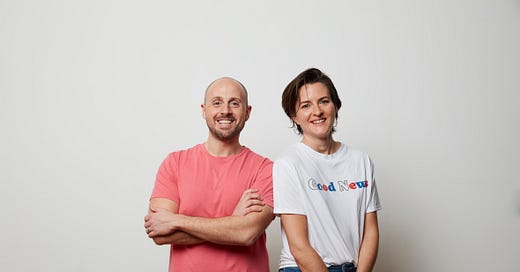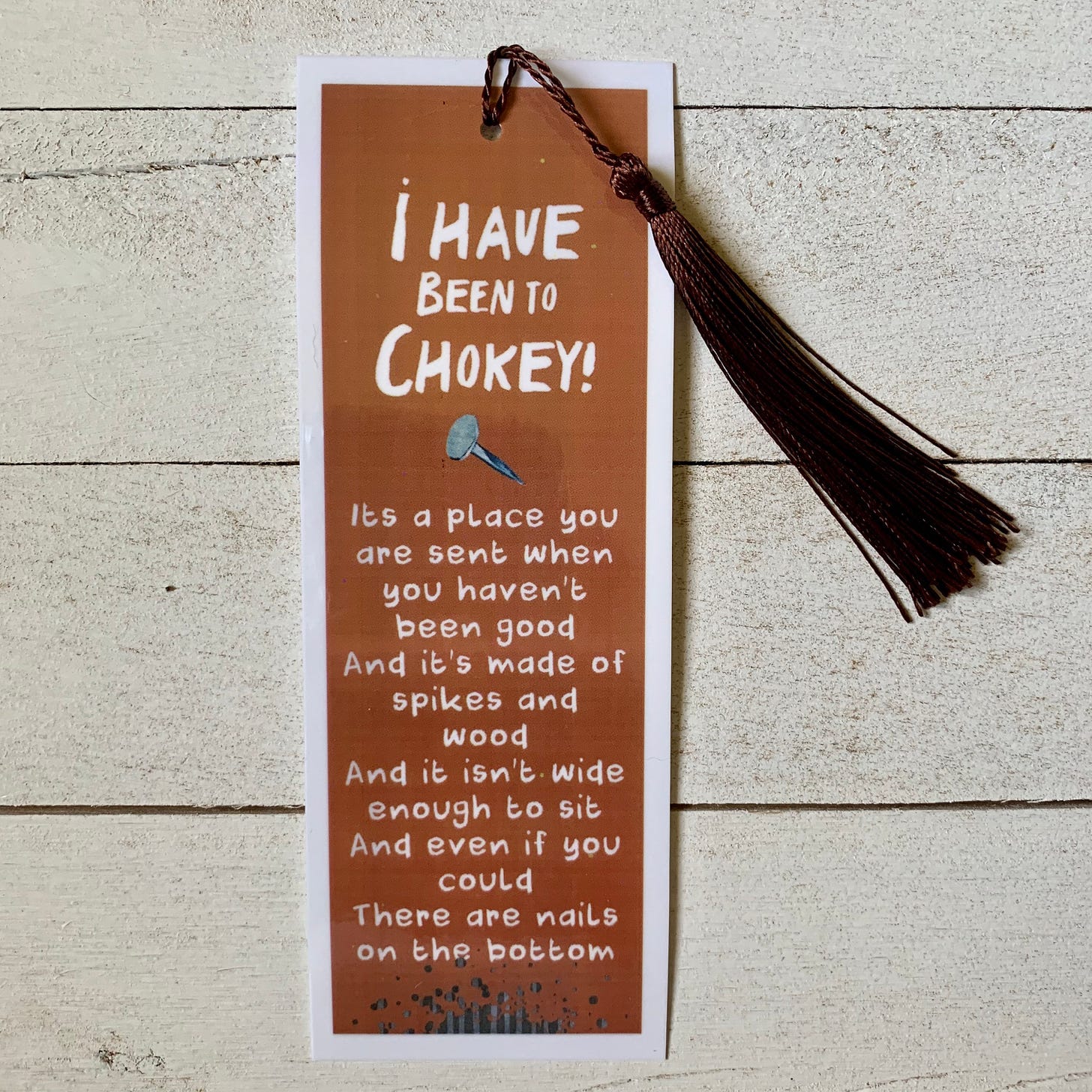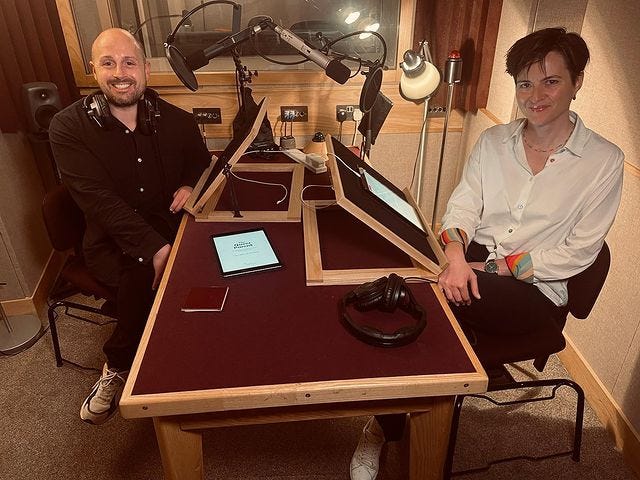My daughter was today year’s old when she discovered Matilda The Musical.
Actually, it’s been a slow burn. Her teacher has been reading the story to the class (hopefully an abridged, or at least the newly edited Young Reader version which avoids some of the more crude language and scary bits - she’s only in Reception!) and I took the executive parenting decision to let her watch the most recent movie adaptation at the weekend.
My wife did not approve - and I get it, there are some really dark moments, particularly for a four year old who has yet to encounter the concept of grownups being anything other than affable, doting slaves to her every whim. But, I assured her, I would fast forward past all the Mrs Trunchbull and Chokey bits, because I agree -these scenes are the stuff of nightmares.
Anyway, it has started some really interesting discussions between us and raised some important ideas, which I feel she’s just about old enough to understand.
Firstly - shock horror, not all grown ups are nice. This was a pretty major revelation for E.
Firstly - shock horror, not all grown ups are nice. This was a pretty major revelation for E. She knows about ‘baddies’ but thinks they are only in cartoons. And for a while she got quite anxious about burglars - it’s remarkable how many children’s books feature burglars and thieves, particularly the classics, when you start noticing them.
Mainly, E was worried that a man in a striped top with a loot bag might come through the window and steal her toys. I had to explain why her Squashymallow collection wouldn’t be top of a thief’s list and promise to lock all the doors and windows extra tight.
But parents and teachers? Well, they are always kind. They care about children. They are to be trusted. Right Mama?
I watched my daughter’s eyes widen in amazement during that first scene where Matilda’s Mum refuses to believe she’s having a ‘stinky baby!’. When E asked, ‘do some Mummies not want their babies?” I felt like a tiny bit of her innocence had been chipped away, but it was also an opportunity for us to have a one of those Significant Conversations - you know, the kind that you feel you’re probably going to end up saying something spectacularly wrong that somehow scars them for life.
I tried to broach the subject that some people find it hard to be kind, maybe because they have had lots of unkindness in their own lives.
I tried to broach the subject that some people find it hard to be kind, maybe because they have had lots of unkindness in their own lives. We spoke about how some parents aren’t able to look after their children but that these children find new families and homes. It was a chance to talk about fostering - we have a friend who has a little foster baby living with the family at the moment so we talked about him and how our friends were loving him and taking care of him.
E asked me if Miss Honey was going to be Matilda’s Mum now and I said yes, sort of
It was also a chance to speak about adoption. I reminded E about Stu and John and their children, her friends N, L and J who were adopted by their Daddies. When Matilda runs into Miss Honey’s arms at the end of the movie, E asked me if Miss Honey was going to be Matilda’s Mum now and I said yes, sort of (I mean, I’m not sure what happened in the way of paper work and panels and social workers but let’s not get too prosaic about this work of fiction!) I told her Miss Honey’s cottage was Matilda’s forever home, and Miss Honey would love her and keep her safe just like Stu and John and their family.
Then we had the whole concept of Mrs Trunchbull to grapple with. Here is a horrible, mean teacher who hates kids. Mind blown! Even though we skipped those scenes, she’s pieced together enough of the story to realise that The Trunchbull is terrifying.
Maybe this message carries a greater significance for children of LGBTQ+ parents.
It felt important for her to ackowledge for the first time that not all children have as privileged a life as she does. And also that not all grown ups are kind but that kindness and love always wins and if we’re strong, and smart like Matilda we can overcome anything. Maybe this message carries a greater significance for children of LGBTQ+ parents.
Before I could get too deep into my thoughts on this, I had to then role play that I was Matilda and E was telling me - aka Matilda - all about her life “My teacher is just like Miss Honey but he’s a man teacher! She excitedly told ‘Matilda’. Maybe you can come to my school and meet him, and my head teacher is so kind and not scary at all. She loves children!”
Then she said “And I have two Mummies!! Two lady women so they are both really, really nice”.
Finally, some recognition!
Cut to an hour later and I am still forcibly in character, only now I’m having to be me (Mama) and Matilda so E can direct both of us in conversation. I mean, just call me Dame Judi.
We’ve since had to watch the film four times in as many days, and play the soundtrack on repeat. But as there is still a theatre kid trapped inside of me, I don’t mind at all. And anything that sparks conversations about different kinds of families and makes E realise that she’s got a pretty sweet deal with two Mummies completely devoted to her is only ever a good thing.
Until, that is, she called me a “scrunched up little germ” and I realised maybe, my wife had a point.
🏳️🌈 🏳️⚧️🏳️🌈 🏳️⚧️🏳️🌈 🏳️⚧️🏳️🌈 🏳️⚧️🏳️🌈 🏳️⚧️🏳️🌈 🏳️⚧️🏳️🌈 🏳️⚧️🏳️🌈 🏳️⚧️🏳️🌈 🏳️⚧️🏳️🌈 🏳️⚧️🏳️🌈 🏳️⚧️🏳️🌈 🏳️⚧️🏳️🌈 🏳️⚧️🏳️🌈 🏳️⚧️🏳️🌈 🏳️⚧️🏳️🌈 🏳️⚧️🏳️🌈 🏳️⚧️
Miranda Sawyer likes our podcast!
Have you listened to our podcast with the amazing polyamorous, queer, disabled, solo parent Cathy Reay? She had some great advice for how to handle a situation when your child points and loudly asks questions about a differently abled person in the street. Clue: This is not a chance for you to prove how woke you are for your own liberal ego. It’s a chance to embrace the awkwardness and not need to make the situation ‘ok’.
And how about our chat with Paul Morgan Bentley? He introduced us to the idea that non genetic parents can still be ‘biological parents’ to their children, because of all the changes a body undergoes from hormonal to neurological when you become a caregiver.
🏳️🌈 🏳️⚧️🏳️🌈 🏳️⚧️🏳️🌈 🏳️⚧️🏳️🌈 🏳️⚧️🏳️🌈 🏳️⚧️🏳️🌈 🏳️⚧️🏳️🌈 🏳️⚧️🏳️🌈 🏳️⚧️🏳️🌈 🏳️⚧️🏳️🌈 🏳️⚧️🏳️🌈 🏳️⚧️🏳️🌈 🏳️⚧️🏳️🌈 🏳️⚧️🏳️🌈 🏳️⚧️🏳️🌈 🏳️⚧️🏳️🌈 🏳️⚧️🏳️🌈 🏳️⚧️
We’re in the studio dahling…
Last week Stu and I recorded the audio book for The Queer Parent. We had so much fun and can’t wait for you to hear it.
Follow us on Instagram






Brilliant newsletter Lotte! I loved reading this edition (as always). It’s just shows how helpful good movies, TV and film can be - especially when there is constructive analysis